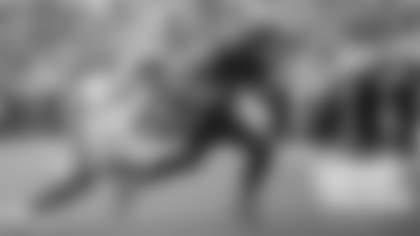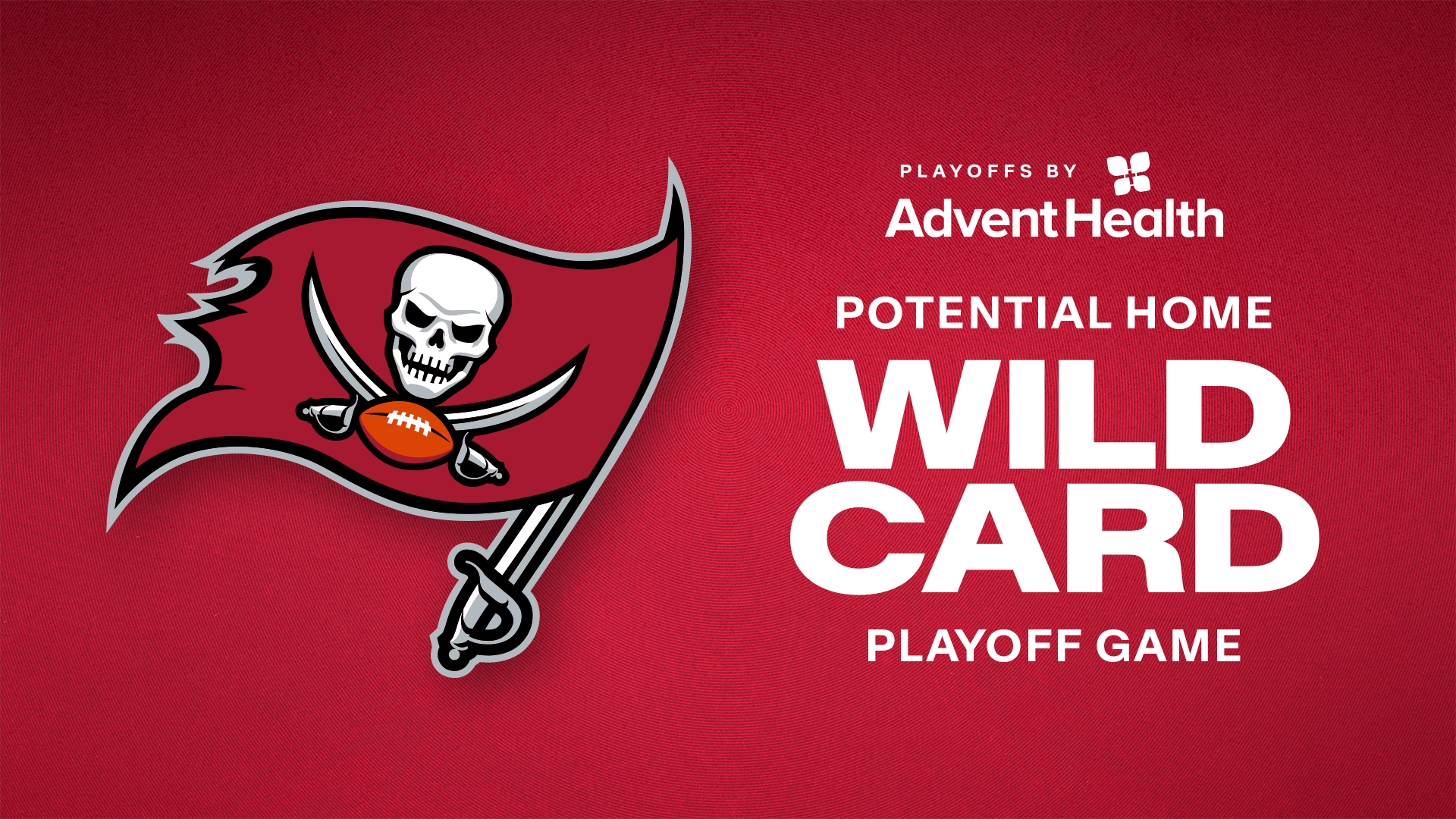Head Trainer Todd Toriscelli would like to see a change in the way preseason rosters are handled
It's a debate that pops up in the NFL every summer; you can expect to see it tossed around again this year.
How many preseason games are enough? Should the NFL reduce its preseason slate from four games to, say, two? One? None? If so, does the regular season get expanded?
The impetus for the debate: Key players suffering injuries in August that make them unavailable for September or, worse, the whole season. When a Michael Vick trades a handful of preseason snaps for three months on the inactive list, as he did in 2003, fans feel cheated. But would the Falcons have felt comfortable heading into the season opener without any live-game practice for their starting quarterback?
There are a few headline injuries each year. Jason Sehorn. Trent Green. Chad Brown. Correll Buckhalter.
So what's the answer? Two; four; zero?
Todd Toriscelli has an answer to the question, and it's a little different than what you might have heard in the past. Toriscelli's input is relevant, too, in that he is the Tampa Bay Buccaneers head trainer and thus particularly involved when players get hurt. He doesn't like preseason injuries any more than the next guy – less, probably, considering he has to coordinate the rehab – but he doesn't advocate the elimination of August games. Toriscelli knows that the preseason serves as an important evaluation tool for coaches and scouts.
So what is his reaction to the debate?
Well, that's precisely what one Buccaneer fan named Aaron Russ wanted to know. Russ had an opportunity to ask this question of Toriscelli because the Tampa Bay trainer was the latest guess on the Your Turn interview series here on Buccaneers.com. Fans spent several weeks sending in questions for Toriscelli, and he recently answered 20 of them, including Russ' query.
You can find the first half of Toriscelli's interview here. Below is a written transcript of the second half of the interview. You can also watch Toriscelli answer the questions on video using links on the home page or in the Video Archive.
Read on for Toriscelli's preseason thoughts and his answers to nine other fan-submitted questions.
**
Your Turn with Todd Toriscelli, Part 2
- Russell Clawson of Tampa, Florida asks:
I had the same neck injury that Mike Alstott suffered. Did you have to do anything special for him to be able to sustain all of the hits that he took last year, e.g. massages, heat treatments, etc.?
Toriscelli: "Well, we did a lot of treatment, a lot of rehabilitation. But I think what really helped him was that he had a great surgeon and I think the surgery was done properly. Since it was a season-ending injury, he had a lot of time to heal. I just think the whole thing worked out really well for Mike. It was a big injury, and he was a great guy to work with. He worked hard and again, he had a great surgery, best in the country at that procedure, and it worked out perfectly."
**
- Dewey H. of Ross, California asks:
What individual player do you think you have spent the most time with recovering over your years as a Buccaneer?
Toriscelli: "Well, that's a good question. Probably, Mike. Alstott has had several injuries, unfortunately. Joe Jurevicius is another guy who, over the past three years, I've spent a lot of time with. Both guys are great to deal with and worked extremely hard. But I would say, because Mike's been here longer – Joe came to us through free agency – since '96, probably Mike."
Moderator: "Does Mike approach his rehab the same way he plays?"
Toriscelli: "No question. He hasn't missed a lot of playing time, now."
**
- Name: Spencer Brodsky of Potomac, Maryland asks:
What is the most common injury to a QB?
Toriscelli: "On our team or just in general?"
Moderator: "In general."
Toriscelli: "I think shoulder injuries are becoming [more common]. Look at what happened in the league this year, and what happened to one of our quarterbacks. Another quarterback on our roster had some shoulder problems prior coming to our team. Shoulder injuries, because they get sacked and they have their arms up."
Moderator: "That's what happened to Chris; it was trapped at his side."
Toriscelli: "Exactly, exactly."
**
- John of Cedar Falls, Iowa asks:
What is the best way to prevent injures, especially injures for high school football players?
Toriscelli: "The first thing to injury prevention is making sure that when you report to training camp you're in great shape. You've trained properly and your weight is where it's supposed to be. That's critical. Even at the skill positions. When you think of weight problems, you think about linemen, but even at the skill positions, the more weight you have to carry, the more stress on the soft-tissue structures and the quicker you fatigue. So that's critical. High school kids need good advice. I think the coach is important, how you structure practice. If you look at what we do here, especially during training camp, we really try to get our work done, and the Coach is very open to trying to do things that allow our players to recover for games. We have the preseason games during camp. I think that's critical. When our players go into a game, we try to make sure that they are as fresh as possible, physically, and that they've gotten their work done, and I think that goes a long way toward preventing injuries."
Moderator: "Sticking on this topic for just another second. In the first half of the interview, you talked about how high school players could approach strength training. Maybe you could reprise what you said then about approaching strength training not necessarily to get as muscular or as strong as possible but to help you more on the field."
Toriscelli: "Yeah, that's the overall goal if you look at any strength program at the high school level, regardless of sport. You want what you gain in the weight room and in your training to transfer onto the field. That's why you're doing it. I think that for high school kids to get caught up in how much they bench press or how much they do in a one-rep max squatting is not only potentially dangerous but it's information that does not transfer to the field. When it comes down to it, nobody's going to care what you bench or squat. It's whether you stay healthy and perform well playing your sport."
**
- Scott of Cincinnati, Ohio asks:
With all the injuries in the NFL these days, do you feel it's a lack of training by the athletes? Or is it possible these guy are in shape but do not rest their bodies enough to fully recoup from hard workouts? Basically, are their muscles and ligaments too stressed?
Toriscelli: "I think that maybe years ago the problem may have been under-training; guys were not in shape. In my time in the NFL, I think the opposite might be true. I think that guys may over-train, especially in the offseason. That's why we like to get them in our program, because we really think it through. Again, [Strength and Conditioning] Coach [Garrett] Giemont and [Assistant Strength and Conditioning] Coach [Mike] Morris have a great program. I think the guys that go off on their own may over-train, and that's on every team. So it's probably more training than what is needed that might set you up and fatigue your body. Football practice and just our normal conditioning will fatigue you enough. And, again, we have a system to try to get our players fresh for the games."
**
- Mark L. of St. Augustine, Florida asks:
What kind of training do you have to go through to be ready for potential emergency situations on the field, like the one with the Detroit player a few years back? What types of emergency equipment do you have on the sideline?
Toriscelli: "We have a system set up to deal with emergencies that we hope we never use. Every team in the league does. There are standards by which we operate. On our sideline, we have an orthopedic surgeon; we have Joe Diaco who has been the team physician here for many years and has seen a lot of injuries, and he brings a lot of expertise to that area. We have equipment to remove facemasks. We have equipment to be used in case of a cardiovascular emergency. In a real emergency, the most important thing we have is our paramedic staff, which is located in the corner of the end zone. They have specialized equipment; they have backboards, for instance, that are oversized and fit to match our players' size. We have a cart that a board would attach to very safely to get someone off the field in case of a cervical injury. And we have in-house, in the stands, a neurosurgeon and various medical personnel to help us in an emergency. We train together with the paramedic staff. We're prepared if we have to deal with that type of injury. We just all work together."
**
- Marcus Curry of Atlanta, Georgia asks:
Who is the toughest Buccaneer player you've worked with during your years there, in terms of injuries and pain tolerance?
Toriscelli: "That's a tough question. I don't want to make anybody mad here. First of all, I can tell you that anybody who plays this game is very tough. Most people don't understand what these guys go through mentally and physically. I would say that just some of the names that come to mind during my time here: Mike Alstott, we talked about him; John Lynch; Derrick Brooks; Brian Kelly. Probably a guy who really stands out for me would be Ronde Barber, because you're talking about a guy who's about 180 pounds, doing what he does. He's been so durable for us, and most people think it's because he doesn't get hurt. But he does. He just plays. He's just got a great football mentality and tremendous pain tolerance, and he displays it a lot."
Moderator: "He rarely misses a game."
Toriscelli: "He rarely misses a game, and he makes my job easy. Again, we have a lot of physically tough players on our team, but he really stands out."
Moderator: "And Derrick Brooks has never missed a regular-season game."
Toriscelli: "And, again, that's not because he's never been hurt. Playing his position…"
Moderator: "Safe to say, at the end of the year, a vast majority of the players on the team are dealing with some sort of injury. Is that correct?"
Toriscelli: "Not just at the end of the year – coming out of training camp. There really is never a time when these guys are perfect, like the way we hope they are when they walk in for training camp. That's just how football is. You're always going to have something to deal with and you just learn to perform with it. Again, it's amazing what these guys do."
**
- Aaron Russ of New York, New York asks:
There's always a debate every summer about the length of the NFL preseason. Some people (including me) think the preseason should be more like two games, because it's really demoralizing to see one of your important players get hurt in a game that doesn't count. As a trainer, how do you feel about this?
Toriscelli: "Well, as a trainer I wish we didn't play any preseason games. But that's how it's structured. I agree that it's a tough thing to see one of your players who you know is going to make the team suffer an injury. But I think preseason games are important for evaluating players. I think our personnel people would see a need there. What I would like to see along those lines is, from an injury standpoint, for us not to have a cut and then another cut at the end. We cut down to 65 players after the third preseason game and then we cut down to 53. I'd like to see us maintain our roster size throughout the camp."
Moderator: "So for the fourth game you wouldn't have to play everybody as much."
Toriscelli: "Right. I guess so you wouldn't have starters who have to play the entire half. I've seen starters play the whole game because of injuries and other things. I just think at the end of camp…again, we talked about how fatigue is a factor in injuries. If you're fatigued at the end of camp, having to play an entire game or even a half is pretty demanding. I'd like to see us carry that full roster throughout. Even though that's more work for the medical staff, I think in the end it would help us."
**
- Tom M. Ellie of St. Petersburg, Florida asks:
I was wondering, with the future demise of One Buc Place, how much input were you allowed to give in the building of our new training facility?
Toriscelli: "A lot, actually. It started years ago. I took various trips to facilities throughout the NFL and saw what was out there. We were sent with the intent to try to make ours better and we were very involved in the design of it. It's a once-in-a-lifetime opportunity. It's a building that hopefully will be around for a long time, so we took that very seriously and the entire staff contributed. The ownership here called on us quite a bit, and again that was something that was a great opportunity for us."
Moderator: "I know you've sat through a lot of meetings about it, too, through the years. I assume that you've been given the green light on most of the things that you want to do."
Toriscelli: "Absolutely. They are very open to our suggestions. Again, we did our homework. We saw what was out there, what worked and what didn't work. I think we have a good plan and it's really exciting, and it's on its way to being built."
**
- Brian S. of Ft. Myers, Florida asks:
Whatever happened to the helmet-shaped injury carts? Did you ever drive one of those? The Bucs should bring those back – they'd be the envy of trainers all around the league.
Toriscelli: "That's a good question. I used to like seeing the big helmet come out there. I don't know what happened to the helmet cart, but I know this: We designed our field cart to meet our needs medically, and I don't think a big helmet over it is going to add to that design, unless it's raining. We mentioned about the spineboard – the spineboard has to fit right on there. And we have a seat that comes down for a player to sit on, and then we can scoot him back. And you need room to store emergency equipment on there. I think with the advancement of technology with the field cart, the helmet cart is obsolete."
























